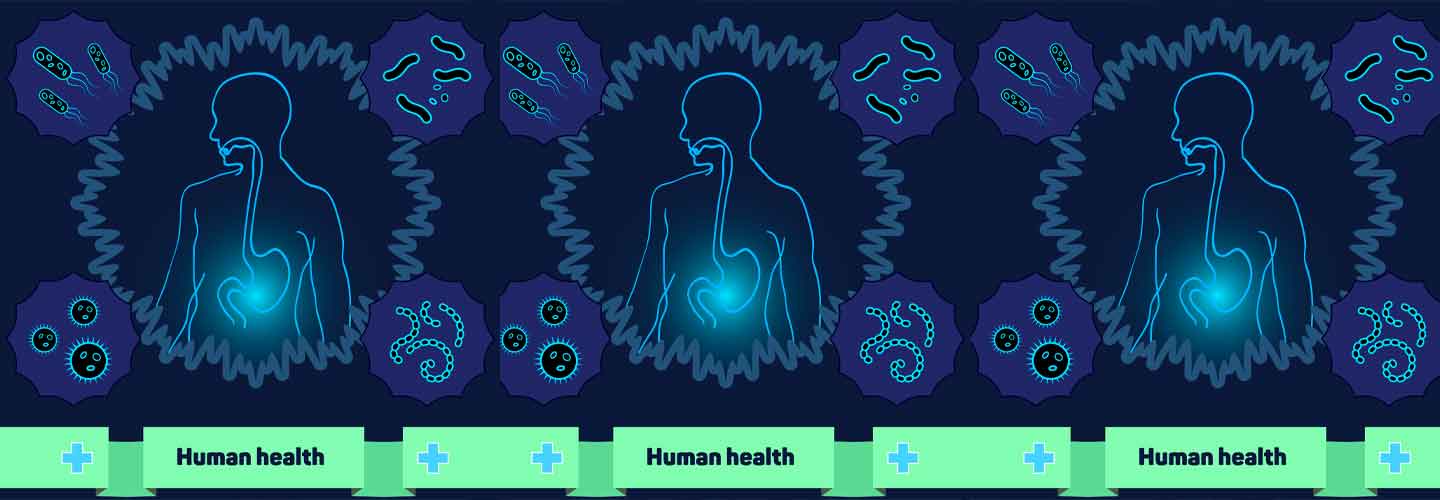Your Mighty Moody Microbiome – Part 5 Convert Your Microbiome to a “Team Player” to Alleviate Depression, Anxiety and Bipolar Disorder
- Home
- Blog

Reader, pretend for a moment that you are back in school, and these blogs are part of your “Microbiome 101” curriculum—and as your instructor I am about to hand out homework. What do you remember about those loathsome school assignments? Did you prefer book reports over science homework? Story problems over essays? Memorizing speeches over memorizing languages? Whatever your preferences may be, I bet you’d prefer anything over the dreaded group project. Perhaps you cringed at the mere mention of it! After being grouped together, one or two students would inevitably carry the weight of the rest of the group. I can recall on one group project in my school days, one student didn’t even bother to show up to the final presentation! In these scenarios, there are natural overperformers and natural underperformers—unfortunately, it’s all too often that dumb luck determines which combination you wind up with, and how your assignment will ultimately come together, or not.
Likewise, many of us wish that maintaining or achieving health and wellness in our own bodies would be a solo assignment. Sure, we might ask for the support of our friends and family, but ultimately, we’re the ones to do the work—or “turn in the homework” so to speak. However, this couldn’t be further from the truth. In fact, our mental and physical health outcomes are very much a group effort—and the biggest player beside yourself lives inside your own body. If you’ve been following along with this series, you know who I’m referring to—those 90 trillion bacteria that comprise your Mighty Moody Microbiome. Just like group projects from your schooldays, your gut microbiome might very well be an underachiever. It might also be an overachiever. Unlike those group projects, however, in this instance it’s not the luck of the draw. If you take care of your microbiome, it will take care of you and your 32 trillion cells. It will keep your body and mind healthy and happy.
This week, we’re going to take a look at how your microbiome can be an underachiever—and we’ll consider what you can do to make it work for you as an overachieving teammate!
The Manufacturing Plant in your Mighty Microbiome
When we explored our personal human genome in our two blog series, “DNA: I Am Who I am… or Am I?” and “DNA: Nature your Nurture”, we took an in-depth look at how certain genetic variants (vulnerability variants) may predispose us to mental or physical health concerns, from addiction to cardiovascular concerns to Alzheimer’s Disease and much more. Other variants may bolster us against these same concerns—make us more resilient. Our genes are certainly active participants in our group projects. The trillions of bacteria living in our gut are just as active—and we are just beginning to understand why some microbiomes are more overachieving than others. One intriguing area where the microbiome can over or underachieve for our bodies is in its manufacturing and synthesis of micronutrients like vitamins.
Two examples below provide a preview as to how our Mighty Microbiome works in our favor. Within our gut microbiota there are bacteria charged with producing and synthesizing Vitamin K. Vitamin K2 is an essential player in our heart health: once synthesized, it helps to decrease vascular calcification, lower cholesterol levels, and elevate HDL, all of which contribute to a lower risk of heart disease, stroke and other vascular disorders. If your microbiome can efficiently synthesize Vitamin K2, it certainly qualifies as an overachiever in the continuing group project of keeping you healthy. Your intestinal bacteria also synthesize Vitamins B5 and B12. Deficiencies of these vitamins have been linked to both gut-related health concerns like gastrointestinal discomfort, as well as psychological and neurological concerns like chronic insomnia. If your microbiome doesn’t adequately synthesize these important vitamins, it may not be pulling its weight in its participation in maintaining your overall health and well-being.
Your Microbiome and your Metabolism—Friends or Foes?
Another area your microbiome can be an over- or under-achiever is in connection with your metabolism. Metabolism is a term that is used to describe all chemical reactions involved in maintaining the living state of the cells and the organism itself. Your gut bacteria is such a significant player in the regulation—or dysregulation—of your metabolism that scientists now consider interventions that alter the microbiome to be the next frontier in potential therapies for metabolic disorders. As a refresher, processes regulated by your metabolism include glucose metabolism and insulin sensitivity (related to how your cells produce energy to power their myriad functions), as well as storage of fat and feelings of hunger or satiety. A dysregulated metabolism may lead to obesity—making this area of study particularly fascinating.
Metabolism regulates important bodily processes—and hormones regulate metabolism, as well as sleep, mood, reproduction, and many other things. Hormones are produced by our endocrine system, and one of the largest pieces of our endocrine system are our enteroendocrine, or EE, cells that are located in our gastrointestinal system. These cells “sense nutrients and secrete multiple regulatory factors” that influence digestion, intestinal motility, and food intake. As it turns out, our gut microbiome can influence the EE cells in our bodies, including the release of hormones that regulate our metabolism!
This is but one way our microbiota can influence hormone production and secretion to directly impact our metabolic regulation. Microbiota also play a role in creating SCFAs—microbial “end-products” that provide energy for our metabolic processes. SCFAs also aid in producing hormones that impact a wide range of crucial functions in our body, from our appetite to our immune response. Some of these hormones actually help prevent obesity by reducing our appetite!
Studies have found that there is, in fact, an “obesogenic” microbiome—that is, a specific set of gut bacteria that may lead to obesity. In our series about the Mindful DNA genetic test, we covered genes that may contribute to obesity or other gastroimmune disorders. Your microbiome is a participant in that group effort—and whether it contributes to obesity or not can have huge health implications for both your mental and physical wellbeing.
Can You Make Your Microbiome an Overachiever in Alleviating Depression and Anxiety?
Your mental and physical health are not solo assignments. Rather, your microbiome and other factors are team players in helping you achieve a “good grade” in these areas. Maybe even an “A+” health status. So, if your microbiome is not holding its weight on your team, what might you be able to do about it?
Scientists are still pondering this question—but there are exciting possibilities on the horizon—including stool tests that can help determine what your microbiome is doing for you—and what it could be doing better. Genova Diagnostics offers a stool test and several other tests that answer critical questions about your microbiome. And the Mindful DNA test by Genomind assays genetic variants such as FUT2, HLA-DQ2/HLA-DQ8, and MC4R, that can provide additional answers. Both tests provide actionable information to bring health to your Microbiome, which in turn may help alleviate symptoms of depression, anxiety, bipolar disorder, cognitive impairment and more.
These insights provide intriguing new possibilities for treating physical and mental health concerns. Much more is to be learned about our bodies in this realm, but one thing is for certain: your Mighty Moody Microbiome has a big say in regulating key cellular processes—and we should learn more about what it can do to contribute mightily to our personal health and well-being team!
.png?width=144&height=144&name=Untitled%20design%20(34).png)




